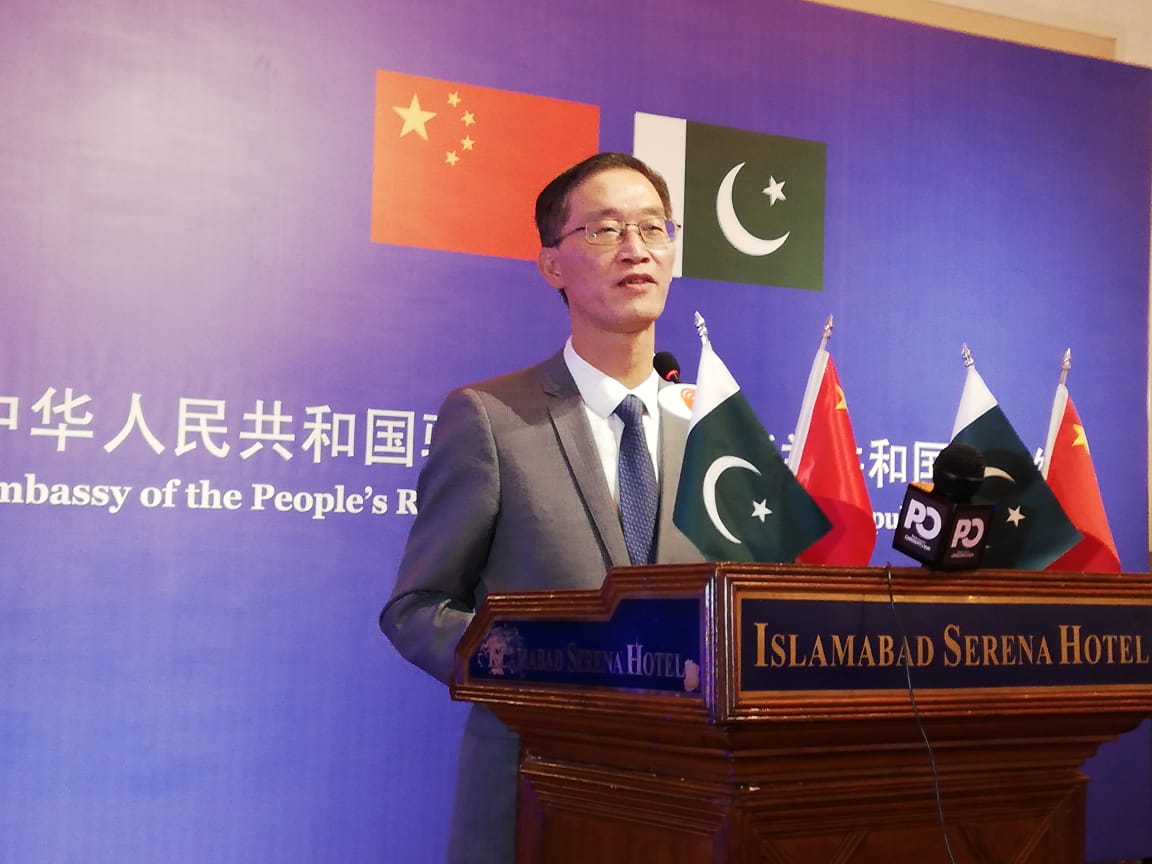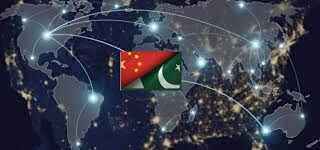
China, Pakistan working closely to defeat enemy designs against CPEC
ISLAMABAD – Outgoing Ambassador of China Yao Jing has said that China, Pakistan Economic Corridor (CPEC) was making fast progress and more mega projects are in the pipeline, saying this model could further gain progress if Pakistan could appoint officials who are expert on the functioning of Chinese government and its market.
In an interview with the DiploMag, Chinese Ambassador was asked to identify the biggest challenge to the CPEC.
“I am greatly satisfied with the progress made on CPEC. But if you ask me about the biggest challenge to the CPEC, I believe there is no such challenge. Yes, we can further the progress on CPEC if Pakistan may appoint people expert on China’s governance mechanisms and its working of the markets,” said the envoy.
He said that CPEC is now well connected to the satisfaction of both sides.
“Lack of expertise of Pakistani officials on functioning of Chinese government and its companies remains the biggest concern. In China, we have some experts on Pakistan’s functioning model but there is a lot more to be done for Pakistani authorities to learn the functioning of Chinese markets and government,” he added.

Mega Projects under CPEC
Ambassador Yao Jing said China and Pakistan have made development on mega projects under the CPEC.
“You see ML-I (Mainline-I Railway Project) is biggest of such projects. We were was stuck for a while but now we have made a breakthrough on it and we are moving to its commercial part. Although commercial loan issue remains yet to be settled but it is being finalised between the two governments,” he added.
He said hydropower stations also are mega projects under the CPEC.
“We are right now working on two hydropower projects but some more are coming. And we are talking about Motorway (M-6) and some highways construction in Balochistan. We are also talking about expanding KKH,” he said.

Threats to CPEC
Talking about threats to the CPEC, Ambassador Yao Jing confirmed that China had raised security concerns during the recent visit of Foreign Minister Shah Mahmood Qureshi to Beijing and both Pakistan and Chinese governments were working jointly to defeat the enemy designs.
“Yes, security issues were discussed. There are some externally-supported elements who are working against the China, Pakistan Economic Corridor (CPEC) and there were some terrorist attacks recently. Such elements are a major security threat to Chinese companies working in Pakistan,” he said.
Yao Jing said China is very grateful that Pakistani government has adopted very comprehensive security plan for the CPEC and the Chinese companies working on these projects.
“The Strategic Security Division (SSD) has been established and just last year, they opened a new division called Southern Division. We are going to collaborate with law reinforcement department, basically Ministry of Interior and Police Department”.
He said China and Pakistan are going to have more local-based stations and exchanges of experience for capacity building of these forces tasked to secure CPEC projects.
“We are also having some kind of police related capacities in different provinces. Thirdly, we are jointly monitoring external elements who are detrimental to CPEC. We are also having intelligence cooperation between Pakistan and China”.
Asked whether China and Pakistan were also implementing an intelligence cooperation to counter such nefarious designs against the CPEC projects, Amb Yao Jing said, “yes, intelligence corporation is also operational”.

Industrial Cooperation
Ambassador Yao Jing says that Special Economic Zones (SeZs) were a major part of the industrial cooperation between the two countries and Rashakai SeZ would be the first success story in this regard.
“Under the industrial cooperation, we identified four areas including the SeZs. For which, we have identified special areas. Initially we could not make progress on SeZs due to involvement of various tiers of the federal and provincial authorities. We needed to have special areas with special tax holiday and other incentives for the investors along with special priorities for the major sectors”.
Asked to elabourate, the envoy said basically CPEC cooperation is between federal governments of Pakistan and China but the SEZs were in the provinces so there were issues. So, it was a little slow. Then various private companies were also involved so it took time to make a breakthrough. But finally we have managed it”.
He said Motorway (M-3) is already functional now.
“Better coordination is half the success. So Rashakai could be the first successful story. Gwadar Free Trade Zone has been a major success. There are 22 factories on construction sector in the Free Zone. Six of them have already finished work on port. Pakistan government has given tax-free incentive to it. Free Zone is now booming”.








